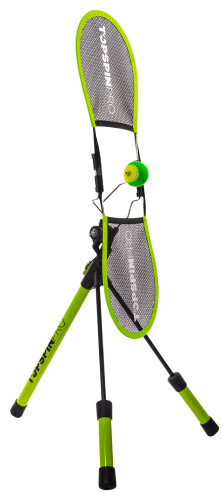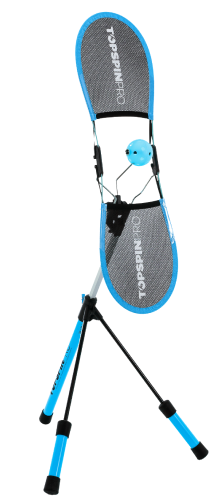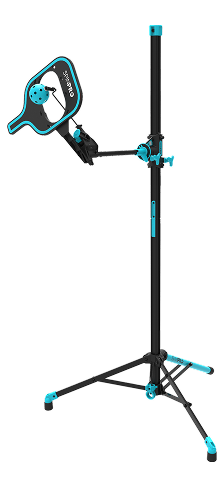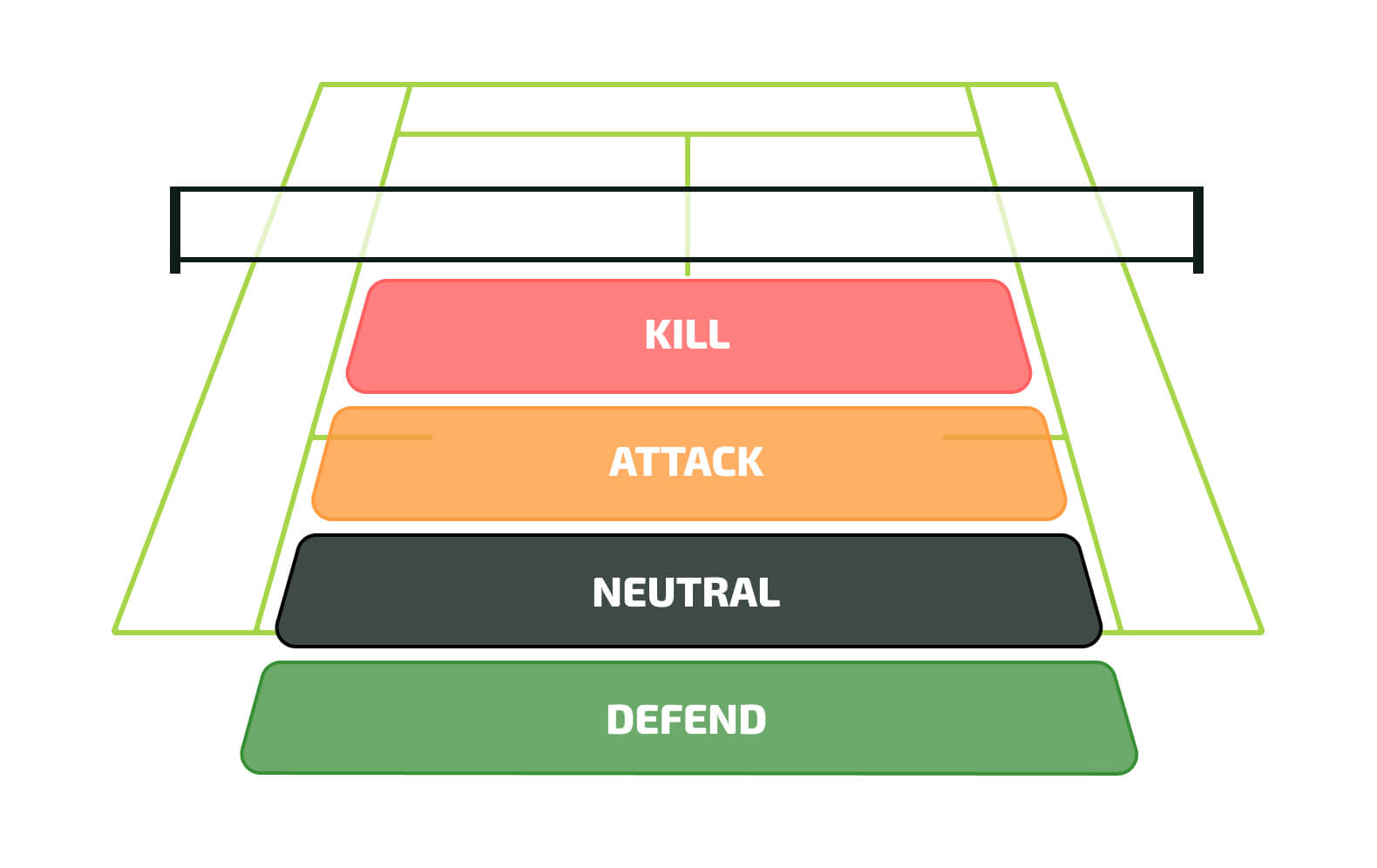 Photo: Matt Fitzgerald
Photo: Matt Fitzgerald
What we'll cover in this article:
Stay in the loop!
Want to be updated when we publish? Be sure to sign up for our newsletter. No spam, we promise!
The physical evolution of tennis over the last 50 years has been phenomenal. What has been the single biggest technical and tactical addition that has enabled players to keep up with this advancement? The answer is topspin!
When Andy Murray spun that backhand lob over David Goffin's head he didn't stand a chance. All Goffin could do was watch it dip back into the court and explode away from him.
The topspin lob is one of the most exciting shots in tennis. Below we'll look in more detail why it's so effective. We'll also look at 7 other ways topspin has been such a crucial part of the evolution of tennis.
The 8 tactical uses of topspin
Have more recovery time
The option to hit extra height equals more recovery time on tough shots. For example, if your opponent stretches you out wide off the court, if you throw in a high topspin return, you will have much more time to get back to the middle to recover before your next shot.
Push your opponent back off the tennis court
The topspin kick that occurs after the bounce results in your opponent contacting the ball further back in the court than they would for an equivalent flat ball. This means their physical position can be pushed back out of their attack zone, often into a defensive position. This makes it harder for them to attack and opens up more court space for you to hit into. This can also force your opponent to be late for their contact point, forcing an error.
Hit more consistent and aggressive lobs
We already know you can control high balls using topspin, but you can also add more pace to the ball. The result is a far more aggressive lob than when hit flat or with a slice. The resulting topspin also kicks the ball up and away from the court, making it very difficult and often impossible to return. The slice and flat lob should be used most often when you are in a defensive position, for example, when stretched out wide or with a ball bouncing behind you. The topspin lob should be used when in a position to attack or if you have more time on the ball. See the image below for a visual of the different lob flight paths.

Hit the ball lower at your opponent’s feet
If you have an opponent at the net one of the best tactics is to hit the ball to their feet. There are 3 main reasons for this:
-
- They have to volley the ball in an upward direction to get it back over the net which can send it into your attack zone.
- Hitting the ball upward also means there will be less power on their shot.
- The ball is much harder to reach and control well when lower to the ground, especially for taller players. This requires significant knee bend, which can be tough for a number of people.
Create wider angles
We know applying topspin makes the ball dip. Not only does this help us with our deeper shots, but we can also use it to our advantage by playing shots closer to the net. We can angle that ball and have it dip shorter and wider than we can for an equivalent flat shot that would otherwise land in the alleys or even wider. We can therefore stretch our opponent further off the court and create large spaces.
Control aggressive short balls and approach shots
Adding topspin to the ball allows you to be closer to the net and still be aggressive without hitting long. Rather than chipping and charging or floating the ball back in while we move forward, topspin allows us to keep attacking with pace from all positions on the court!
Lift low balls with aggression
When balls bounce low to the ground, we have to lift them back up and over the net to get them into the court. If we hit those low balls flat, we have to take a significant amount of pace off the ball not to hit long. Topspin, however, allows us to lift that ball with aggression. Rather than floating a mid-paced flat ball that gives your opponent plenty of time, we can play the ball back with pace and, in many cases, even keep attacking.
Bend the ball
Topspin also enables us to bend the ball back into the court when mixed with a bit of sidespin. This allows certain situations, like bending it around the net post or past a player at the net. See the best examples from Rafa Nadal in the video below!
Bonus: topspin is better for your body!
How often do you see a pro player with tennis elbow? Topspin is bio-mechanically efficient for your body. You are effectively rolling the ball back into the court vs hitting it. That upward action takes away a large amount of the strike impact and therefore protects your body from overuse and shock injuries such as tennis elbow.
Imagine swinging your racket directly in a straight line at a wall vs glancing your racket up it. You know which one will hurt more! This is how pro players can spend hours per day hitting the ball at such speeds. Of course they get overuse injuries from time to time but this is because of the sheer amount of physical and emotional stress their bodies endure.
TOPSPINPRO BEGINNER COURSES
We use the latest neuroscience in our TopspinPro Online Courses. Check them out for some in depth help with developing your shots:
In Summary
We have shared the most important tactical options that topspin can provide on a tennis court. And they're not just for the pros! If you're a recreational player that's mastered topspin and can read a situation this skill will take your game to the next level. With a handful of choices in your repertoire you'll be onto a winner.
Not only does topspin provide you with tantalising tactical options, your body will thank you for it in the long run. And maybe even your team.
When the match is tied and your opponent sends you out wide, remember Andy's lob. Like topspin, it was a game-changer.
----------------
Let us know about your topspin experiences and what you think of this post in the comments below.
You can find more information on “how to hit with topspin” in our full length topspin article “Why you need topspin no matter what your level of tennis!”
FAQs
-
What has been the single biggest technical and tactical addition that has enabled players to keep up with the physical evolution of tennis?
The single biggest technical and tactical addition is topspin. Topspin allows players to control the ball better and generate more aggressive shots, making it a crucial part of modern tennis.
-
How can topspin provide more recovery time during a match?
By hitting the ball with extra height using topspin, players have more time to get back to the middle of the court. This is particularly useful when stretched out wide, allowing for better recovery before the next shot.
-
What are the benefits of using a topspin lob?
A topspin lob is more aggressive and harder to return than a flat or slice lob. The topspin causes the ball to kick up and away from the court, making it difficult for opponents to reach and return.
-
How does topspin help in creating wider angles on the court?
Topspin makes the ball dip, allowing players to hit shots closer to the net and wider without going out of bounds. This can stretch opponents off the court and create larger spaces to exploit.
-
Why is topspin considered better for your body?
Topspin is bio-mechanically efficient, reducing the strike impact on your body. The upward motion of hitting with topspin minimizes the risk of overuse and shock injuries like tennis elbow, making it a healthier option for players.
Links Related to This Article
Enjoyed this article?
Be sure to sign up for our newsletter and we'll keep you up to date about new posts





5 comments
This is the most succinct explanation of the tactical advantages and uses of topspin that I have seen. Simple, and well-illustrated. Lots to think about, and I can’t wait to punish my doubles opponents with some of these ideas next session. The topspin lob, in particular, caught my imagination. Go Andy!
Thanks for the feedback! Let us know how you get on testing out the tactics!!
Great to see Lloyd Harris use the “hit the ball low to your opponent’s feet” tactic against Reilly Opelka as he followed his serve into the net in yesterdays 4th round match at the US Open!
I remember watching that point! Useful post – and interesting to read about the loopier topspin groundstroke as an opportunity to get back into position. I’d never really thought about that before.
For tennis players, the quest for the perfect racquet setup is ongoing. However, often overlooked is the critical role played by tennis strings. The right strings can dramatically affect your game, offering better control, power, and durability. Whether you’re a beginner or a seasoned pro, understanding the nuances of tennis strings is crucial. This guide will explore the world of tennis strings, focusing on finding the best tennis strings to suit your play style, including the increasingly popular polyester string.